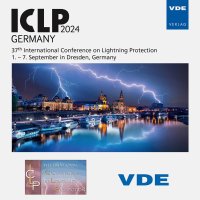Evolution and Recent Improvements of High-speed Video Lightning Detection at Lightning Observatory in Rzeszow, Poland
Conference: ICLP 2024 - 37th International Conference on Lightning Protection
09/01/2024 - 09/07/2024 at Dresden, Germany
Proceedings: ICLP Germany 2024
Pages: 7Language: englishTyp: PDF
Authors:
Karnas, Grzegorz; Filik, Kamil; Maslowski, Grzegorz
Abstract:
This paper was intended to show a long-term development of high-speed video lightning registration as a part of the system operating within the Lightning Observatory in Rzeszow, Poland. Authors concentrated on development of opti-cal setups intentionally designed to improve quality and expand detection area and increase range of the high-speed vid-eo camera. Three different approaches to high-speed video imaging of lightning phenomena were presented. The system started its operation using a common configuration of the high-speed camera directed to monitor only a limited area of earth hemisphere. This approach enabled a good quality of lightning video recordings but the number of unsuccessful and missed registrations was significant due to its triggering by the flat-plate electric field antenna. Next technique in-volving a set of two mirrors significantly increased the field of view to hemispherical zone. Moreover, each lightning event detected by electromagnetic sensors had its corresponding video data. However, the range and quality of the lightning imaging was still at the similar level as for the classical approach. The last setup consisted of an omnidirec-tional mirror with specially designed curvature allowed to monitor a 360 degree area around the imaging sensor but also substantially increased the image quality at the selected elevation level of hemisphere being set close to the horizon lev-el. This was beneficial to high-quality observation of the lower part of the lightning channel where the interaction with ground structures occurs. Good quality of registration within this part of hemisphere is also important for verification of detection accuracy of lightning location systems.


